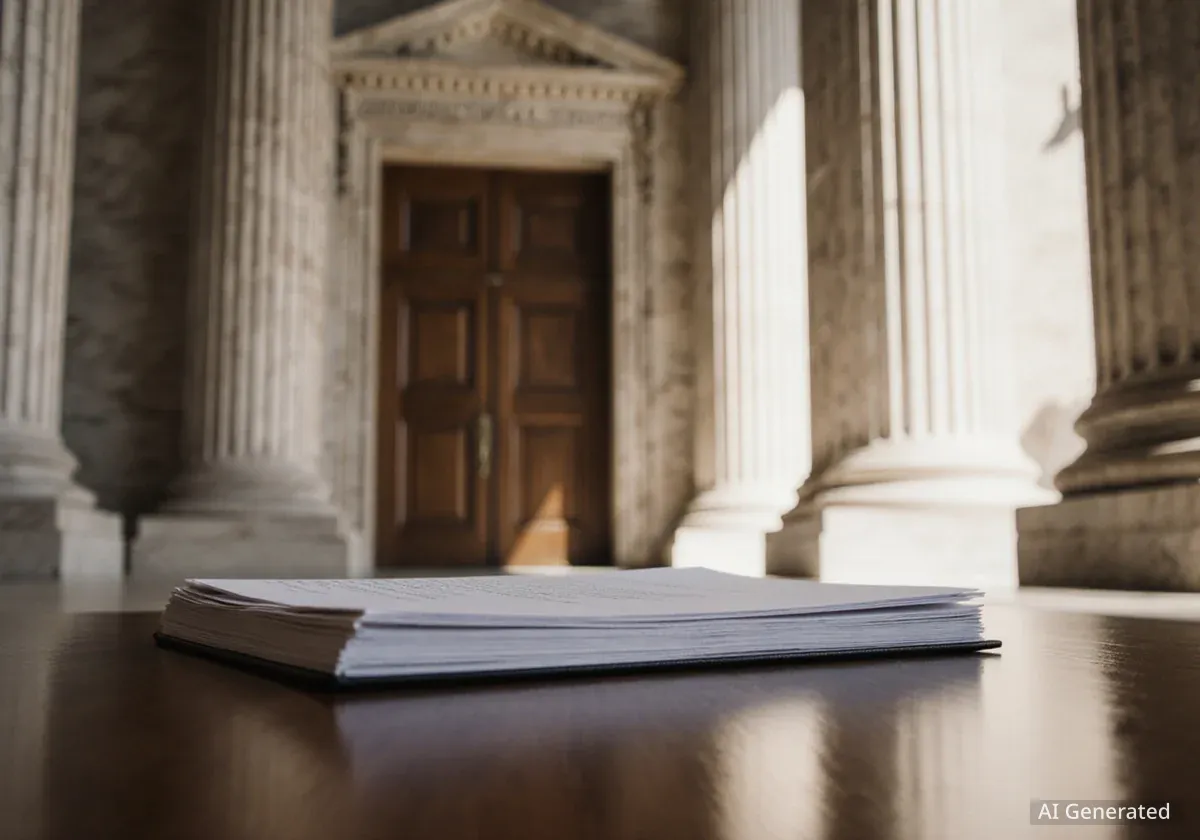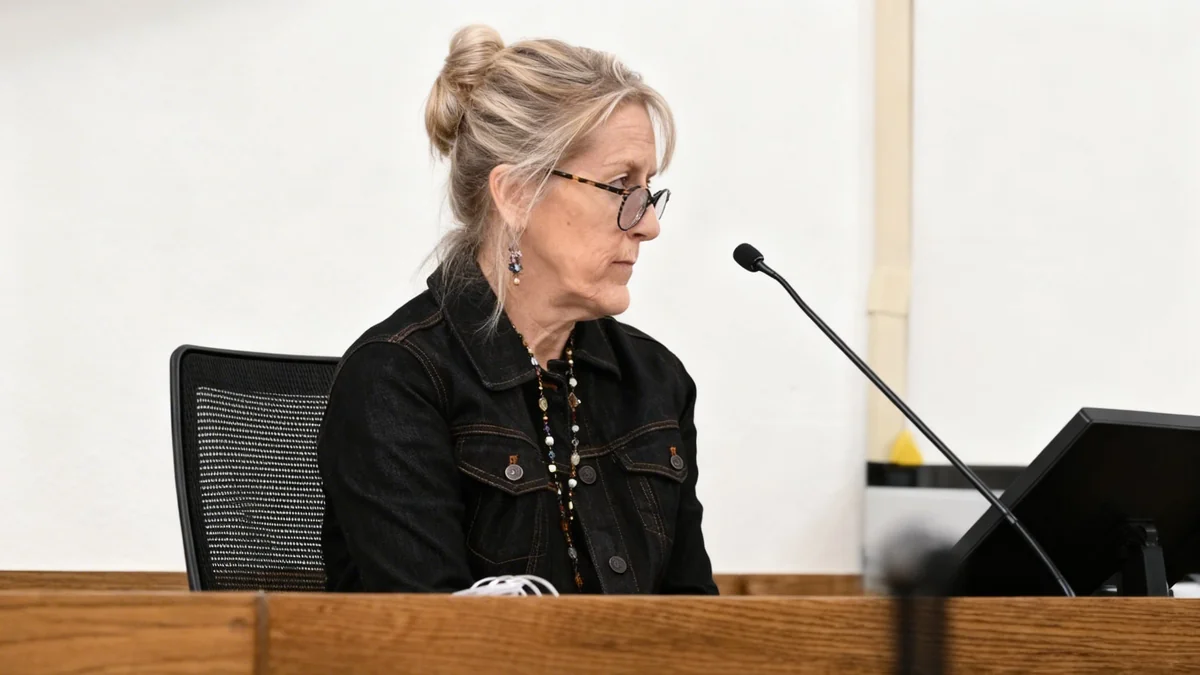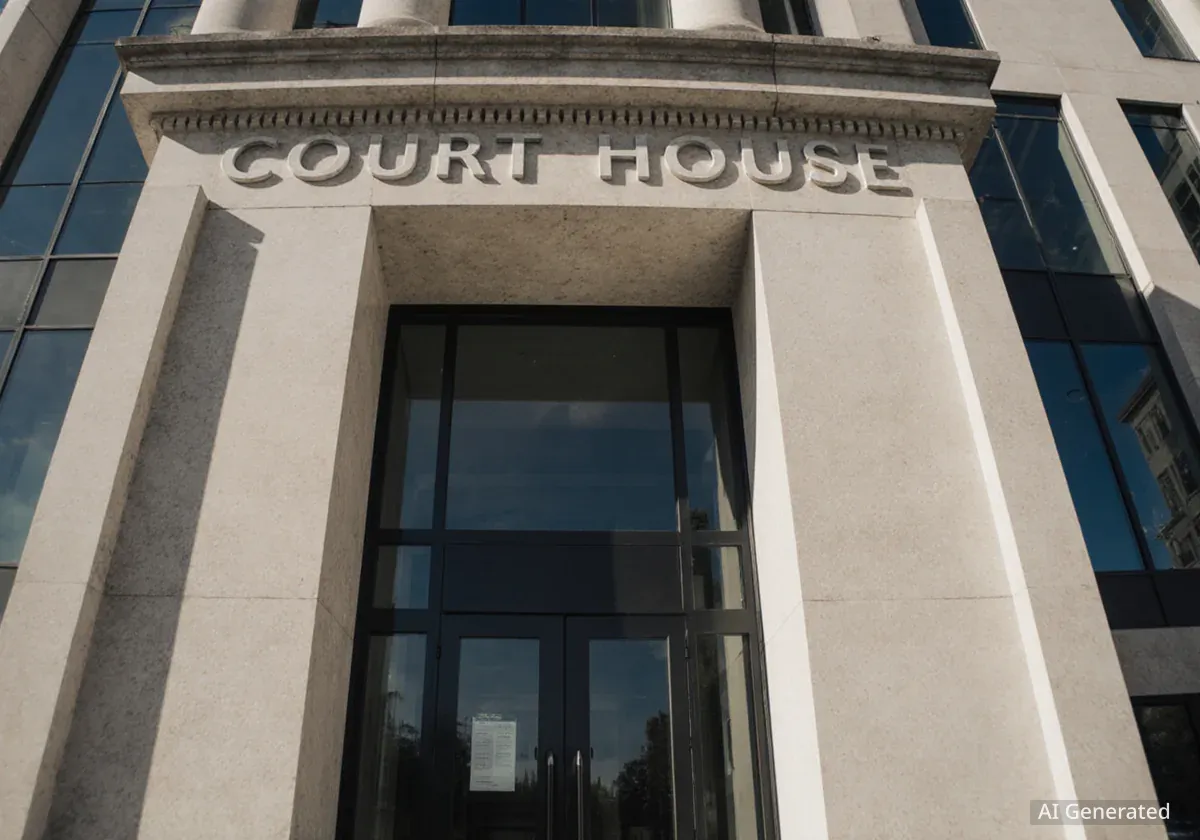Alexandria real estate developer Peter Labovitz has filed for Chapter 11 bankruptcy protection as he faces federal government efforts to collect more than $3 million in unpaid taxes. The potential sale of two prominent properties in the city is now at the center of a plan to resolve the significant debt.
The U.S. Department of Justice alleges that Labovitz, a former newspaper executive, engaged in transactions designed to hinder the collection of his tax liabilities. Legal proceedings have been complicated by a recent government shutdown, which has temporarily paused the case.
Key Takeaways
- Real estate developer Peter Labovitz filed for Chapter 11 bankruptcy.
- The U.S. government claims it is owed over $3 million in unpaid federal taxes.
- Two major Alexandria properties, a residence on Wolfe Street and the Kings Row development, are slated for sale to cover the debts.
- The Department of Justice has accused Labovitz of attempting to obstruct tax collection.
- This is not Labovitz's first issue with unpaid taxes; he was previously sentenced to prison in 2011 for failing to pay employment taxes.
Federal Allegations and Bankruptcy Filing
The core of the issue stems from a federal complaint filed in January, which outlines an outstanding tax liability exceeding $3 million. In response to the government's collection efforts, Labovitz initiated Chapter 11 bankruptcy proceedings, a move that typically allows a business or individual to reorganize their finances while being protected from creditors.
However, the Department of Justice has raised serious allegations in its court filings. Federal prosecutors contend that Labovitz has a history of engaging in complex financial maneuvers to shield his assets. The government claims he “orchestrated a series of fraudulent conveyances and nominee transactions to obstruct, hinder, and delay the collection of his tax liabilities.”
These legal claims suggest an attempt to prevent the government from foreclosing on valuable real estate assets to satisfy the tax debt. The case is being handled in the Eastern District of Virginia.
Understanding Chapter 11
Chapter 11 bankruptcy is often called "reorganization" bankruptcy. Unlike Chapter 7, which involves liquidating assets, Chapter 11 allows a debtor to propose a plan to repay creditors over time. In this case, the proposed reorganization plan hinges on the sale of specific real estate assets.
High-Value Properties Slated for Sale
To address the substantial debt owed to the Internal Revenue Service, a reorganization plan filed by Labovitz’s bankruptcy lawyers centers on the sale of two significant Alexandria properties.
The Wolfe Street Mansion
The first property is Labovitz's personal residence at 510 Wolfe Street in Old Town. At 14,000 square feet, it is the largest home in the historic neighborhood. The property was initially put on the market for an ambitious $10.5 million.
The asking price was later reduced to $8.5 million. Proceeds from the sale of this expansive residence are a key component of the plan presented to the court to satisfy the federal tax lien.
Property Snapshot: 510 Wolfe Street
Size: 14,000 square feet
Location: Old Town Alexandria
Initial List Price: $10.5 million
Current List Price: $8.5 million
The Kings Row Development Project
The second property involved is the Kings Row development, located at 1604-1614 King Street. Labovitz is a principal of Dechantal Associates LLC, the entity that owns this commercial site. The brokerage firm Feldman Ruel was recently hired to manage its sale.
The property, which has an assessed value of $4.4 million, received city approval earlier this year for a major redevelopment. The approved plans include converting five existing townhouses into 10 residential row houses and constructing a new eight-story apartment building with 44 units. The project also features two levels of underground parking and a central courtyard.
While Labovitz has stated the sale of Kings Row is not directly related to his personal bankruptcy filing, its timing is notable. The funds generated from this sale could provide significant liquidity as he navigates his financial obligations.
A Pattern of Tax-Related Legal Troubles
This is not the first time Labovitz has faced legal consequences for unpaid taxes. His history with the IRS dates back over a decade to his time as publisher of Connection Newspapers, a local chain with more than a dozen publications.
In 2011, Labovitz pleaded guilty to failing to pay $940,000 in employment taxes to the IRS. These taxes were collected from employees between 2002 and 2008 but were never remitted to the government. As a result of the guilty plea, he was sentenced to six months in federal prison.
The current allegations from the Department of Justice regarding attempts to hinder tax collection are being viewed in the context of this prior conviction, which established a record of financial non-compliance.
Government Shutdown Delays Proceedings
An unusual external factor has introduced a delay into the legal battle. The recent U.S. government shutdown has temporarily halted the cases against Labovitz. The Department of Justice filed a motion in early October to stay the proceedings until its attorneys are permitted to resume normal operations.
In the motion, the government expressed its position clearly:
“(A)lthough we greatly regret any disruption caused to the Court and the other litigants, the Government hereby moves for a stay of the in this case until Department of Justice attorneys are permitted to resume their usual civil litigation functions.”
This pause means that actions by the U.S. District and U.S. Bankruptcy courts, including a request to take control of Labovitz's interests in his home and another office building at 1700 Diagonal Road (which sold for $21 million in 2019), are currently on hold. The resolution of the bankruptcy and the federal tax dispute will remain in limbo until the government fully reopens and legal activities can proceed.





